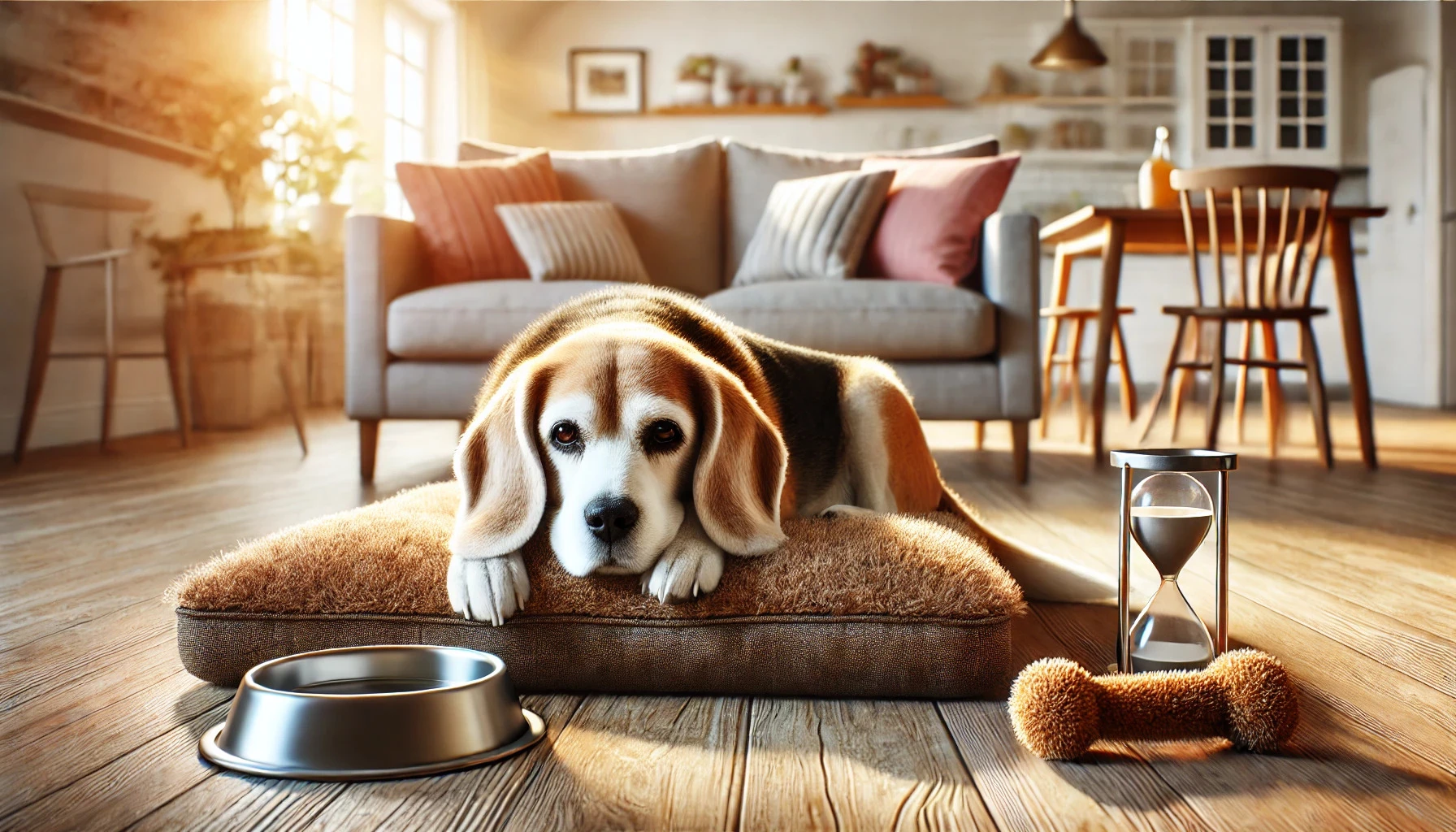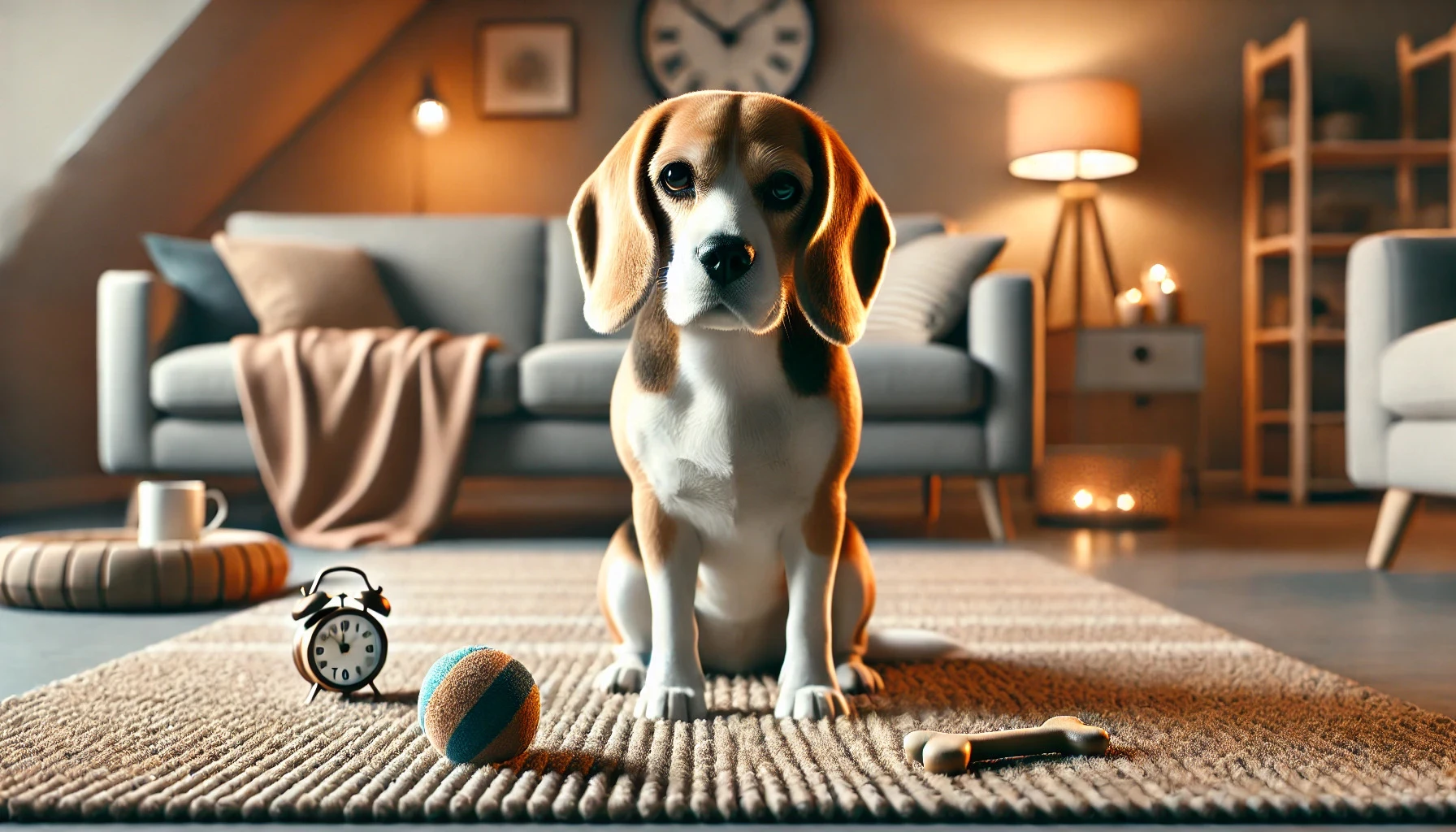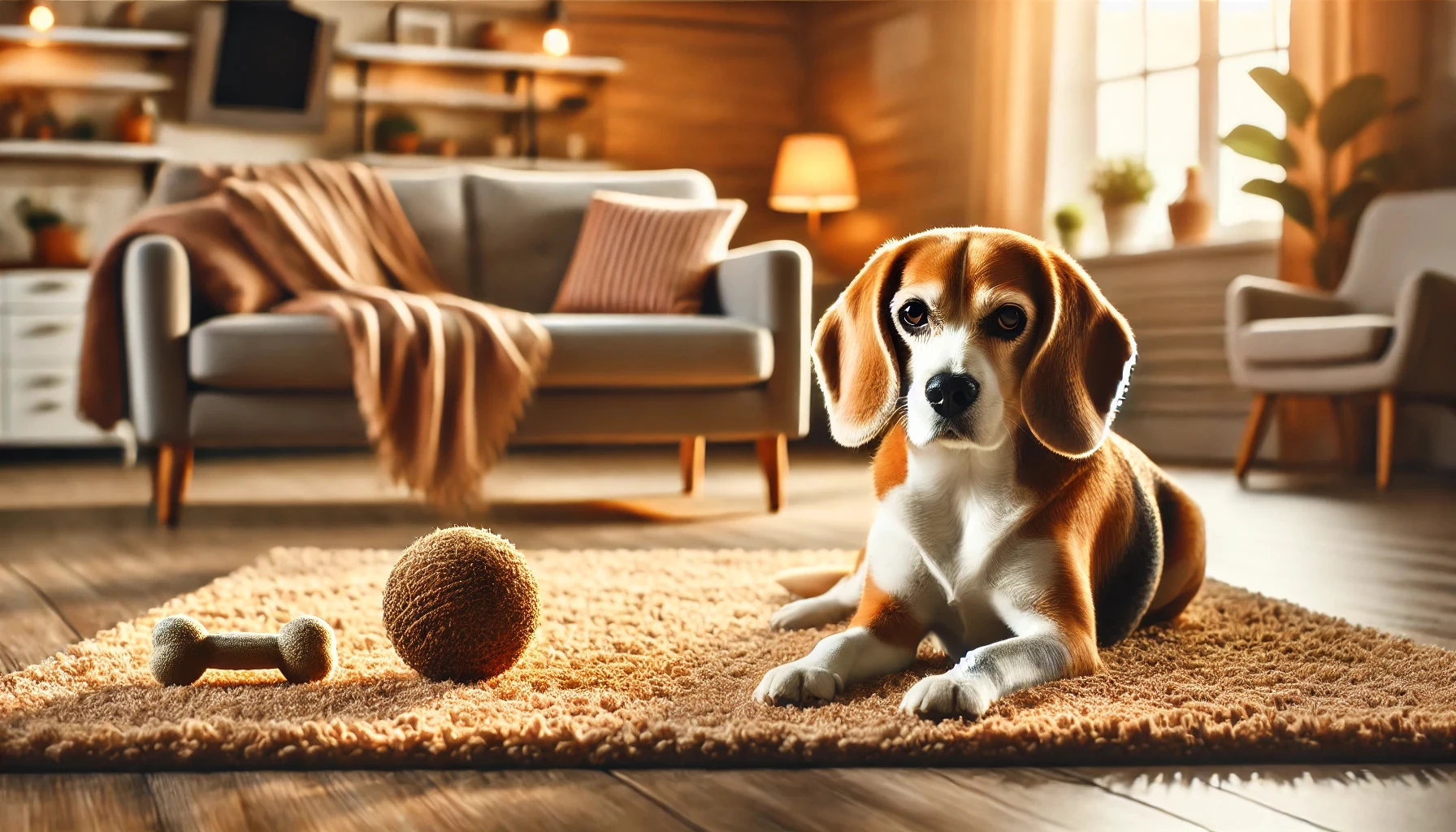On this page
Is It Normal for an Older Beagle to Become Less Playful?
Yes, it’s common for a 10-year-old Beagle to show reduced interest in play as they age. This breed is known for its energetic and curious nature, but as they enter their senior years, changes in their physical health and energy levels are natural. Aging Beagles may also experience joint pain, decreased stamina, or even cognitive changes that impact their activity levels.
Unlike younger Beagles or highly active breeds like Border Collies, older Beagles require a lifestyle that balances gentle activities with plenty of rest. Along with this, their dietary needs evolve, requiring fewer calories but more joint-supporting nutrients.
This article dives into the possible reasons why your senior Beagle is less playful and provides practical solutions to support their health and well-being.
Worried about your Beagle’s activity levels? Let Dosty Petcare App help you!
Is Your Beagle Slowing Down Due to Aging?
Does age directly impact a Beagle’s playfulness? Yes, aging brings physical and mental changes that naturally reduce activity levels.
Common Signs of Aging in Beagles:
Reduced Energy Levels: Older Beagles tire faster during physical activities.
Joint Pain or Stiffness: Conditions like arthritis can make movement uncomfortable.
Cognitive Decline: Senior dogs may appear confused or uninterested in play.
Changes in Sleep Patterns: Increased rest needs often reduce active hours.
Dr. Amanda White notes, “As Beagles age, their bodies require more care, especially in areas like joint health and mental stimulation.”

Could Joint Pain Be Reducing Your Beagle’s Activity?
Is joint pain a common reason for less play in older Beagles? Yes, arthritis and other joint conditions are prevalent in aging dogs, including Beagles.
Symptoms of Joint Pain:
Reluctance to jump, climb stairs, or run.
Stiffness, especially after resting.
Visible discomfort during or after play.
How to Manage Joint Pain:
Supplements: Glucosamine and chondroitin are essential for joint health.
Low-Impact Exercise: Gentle walks or swimming can keep them active without straining joints.
Weight Management: Keeping your Beagle at a healthy weight reduces pressure on joints.
Dr. Kevin Ross advises, “Pain management and a proper exercise routine are vital for maintaining mobility in senior Beagles.”
Discover grooming and recommendation tips for Beagle Now!
Could Cognitive Decline Affect Playfulness in Beagles?
Could mental aging cause changes in your Beagle’s behavior? Yes, cognitive decline is a common condition in senior dogs that can reduce interest in play.
Symptoms of Cognitive Decline:
Wandering aimlessly or staring at walls.
Difficulty recognizing family members or routines.
Less interest in toys or games.
Increased anxiety or irritability.
Ways to Support Mental Health:
Interactive Toys: Puzzle feeders and treat-dispensing toys stimulate the brain.
Consistent Routines: Familiar schedules reduce confusion and stress.
Veterinary Support: Medications like selegiline can slow cognitive decline.
Dr. Emily Carter emphasizes, “Mental stimulation is just as important as physical activity for senior dogs.”
For more tips visit our page Dosty.co.

Is Your Beagle’s Diet Impacting Their Energy?
Can an improper diet make your Beagle less playful? Yes, nutritional deficiencies or an inappropriate diet can contribute to low energy levels.
Nutritional Needs for Senior Beagles:
Fewer Calories: To prevent weight gain due to reduced activity.
Omega-3 Fatty Acids: Support joint health and reduce inflammation.
High-Quality Protein: Maintains muscle mass and strength.
Antioxidants: Help combat age-related cognitive decline.
Dr. Sarah Bennett recommends, “Consult your vet to ensure your Beagle’s diet meets the unique needs of their senior years.”
How Can You Keep Your Senior Beagle Active?
Does your Beagle still need exercise as they age? Yes, regular, low-impact activities are essential for maintaining their physical and mental health.
Tips for Keeping an Older Beagle Engaged:
Gentle Walks: Short, frequent walks are better than long, strenuous ones.
Indoor Games: Hide-and-seek or treat finding games can keep them entertained.
Socialization: Interaction with other dogs or family members boosts their mood.
Stretching Exercises: Helps improve flexibility and reduce stiffness.
Dr. Laura White states, “Tailor activities to your dog’s ability, and always monitor their comfort level.”

Conclusion: Supporting Your Beagle’s Changing Needs
A 10-year-old Beagle playing less is a natural part of aging, often influenced by factors like joint pain, cognitive decline, or reduced energy levels. By addressing their unique needs through proper nutrition, tailored exercise, and mental stimulation, you can ensure they remain happy and healthy in their senior years.
Take control of your senior Beagle’s health with Dosty App expert resources.

